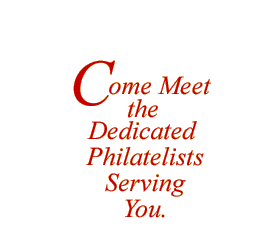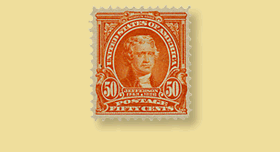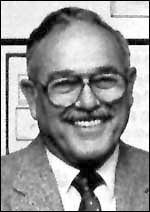 |
 |
 |
 |
Who's Who > A Message from Louis Grunin>Advancing the Hobby of PhilatelyLouis Grunin is the former Chairman of the Philatelic Foundation 
The Philatelic Foundation, as organized in 1945 by a group of farsighted members of the Collectors Club of New York, was founded with the purpose of advancing and protecting the hobby of philately. Its support was to be through tax deductible contributions and fees generated by its expertizing arm. Stamp collecting needed an impartial body to expertize stamps. No thought of gain for anyone concerned was to enter into the picture. An archive was to be established so that records could be kept indefinitely to protect future collectors against the same fakes repeatedly entering the market place. And as part of the total picture this group would attempt to educate these same collectors to protect themselves against the ignorance and outright dishonesty that they might be confronted with in their hobby. Bearing in mind the fifty plus years of Foundation history, its record is pretty good. Other expertizing committees and individual expert committees have come and gone; or started up, stopped for a while, then resumed their work once more, but the PF has carried on, year after year. When it was forced to reorganize itself in 1993 amidst much talk and rumor-mongering nary a tremor was felt in the market place. Ever since the birth of the PF no active professional has been allowed to be its Chairman, again to leave no question in anyone's mind as to the impartiality of the PF. Since many stamps are sent to the PF by professionals for expertization, it was decided about 20 years ago to allow several of them to sit on the Board so as to give us their input and their help. Incidentally, these board members have been from time to time the PF's severest critics also. To summarize from the mail and conversations that I have had it would seem to be that we:
Bad Certificates? By whose standard? The collector who thinks he bought a perfect stamp? The fact is that a number of good amateurs and professionals who aided in the issuance of the certificate didn't think so. Fact is, the buyer of the stamp is protected by the "bad" call. What about the dealer who buys stamps every day and sends them to the PF by the dozens at a time? His interest is only in seeing that the stamps are looked at and returned to him with certificates as quickly as possible so that he can maintain his turnover. Bad certificates? He sends the material back to the auction house he bought it from. It is only when the collector/dealer buys stamps or covers without outside advice or opinion, and then finds others think differently than he does, do the tears flow. It is the hard reality of a disinterested opinion from another that becomes hard to swallow. This is one of the reasons that we get so much business from the trade. No folks, the real issue and source of most of our complaints is why does it take us so long to turn around all these wonderful stamps. To this there are a number of answers, none of them simple. Firstly, the record keeping must be absolute. No mistakes can be made in recording material entering the PF, and the tracking of the stamps through its expertizing steps must be error free. Zero tolerance is the objective! So computer entries are checked and cross-checked. This procedure alone slows the process. Fifty dollar stamps take as much time to classify and expertise as five thousand dollar stamps. A thin spot, or a crease or a reperforation missed does a disservice to either stamp. Right is right and wrong is wrong. Sure, miscalls are made from time to time but don't ever believe that the "experts" out there will ever be better than the experts in here. What must be remembered is that the PF when it does err, it must err on the conservative side. Many years ago the Foundation's opinions were formed by unpaid volunteers. The venue of the Collectors Club where the PF was founded was a free one. Costs were low and so were certificate prices. Unfortunately that condition does not exist today. The Foundation cannot afford to hire excessive personnel to speed up its service without increasing its prices substantially. So we do the best we can. Good food takes time to prepare — or so all the restaurants that make you wait for the main course tell you. So do accurate certificates! We instituted the reconsideration service some years ago to catch our mistakes. Problem is, that takes time also. And don't you believe that we haven't been criticized for that too. What about stamps that come in for new certificates and are reversed on reconsideration? Like "once good, now bad," or "once bad, now good." That's a tough one. I believe that consistency of opinion breeds confidence but stubbornness in changing your mind about honest mistakes is not the solution either. So, what's the bottom line to all this? Quite simple, really. We expertized over 12,000 stamps and covers last year with maybe a hundred complaints as to the quality of the certificate. On reconsideration, perhaps 20-30 were changed. How does the collector protect himself from all this noise? I can only repeat what Ezra Cole, an old time dealer, once told me: "Lou, he said, there are more covers and stamps to collect out there than you can possibly own. So don't buy stamps or covers that need 'stories' to make them good. |
The Philatelic Foundation is located at 341 West 38th Street, 5th Floor, New York, NY 10018 Copyright 2005 - by The Philatelic Foundation, all rights reserved.
|
| Home | What's New | Expertizing | Why Expertize? | History | Educational Resources Publications | Who's Who | Become a Contributor | Contact The PF Application for a Certificate |